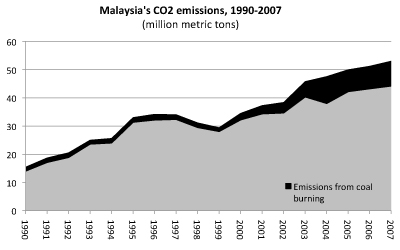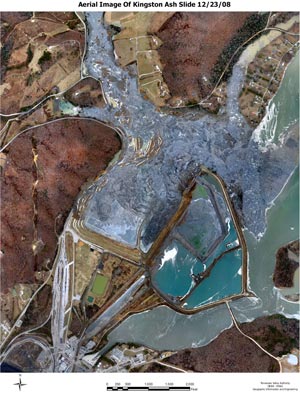Despite strong local opposition, a Malaysian utility company will resubmit a detailed environmental impact assessment (DEIA) for a coal plant in Sabah, on the island of Borneo, according to Green SURF, a coalition of Malaysian environmental groups. The plant—twice relocated due to opposition and environmental concerns—had earlier been rejected due to gross errors in the original DEIA.
In its 2010 annual report, utility company Tenaga Nasional Berhad announced it would submit a revised DEIA with the expectation that the 300 megawatt plant would be approved. The plant has been purchased second-hand from China, according to Green SURF.

|
Environmentalists say the plant will damage Malaysian Borneo’s world-renowned coral reefs, pollute air and water supplies, open Sabah’s biodiverse rainforests to mining, and undermine the state’s effort to promote itself as a destination for “green” investment and ecotourism. The plant is now planned for a coastal area that is situated in the middle of the Coral Triangle/Sulu Sulawesi Marine Ecoregion, an area renowned for astounding levels of biodiversity.
“Sabah should be leveraging on its position as a biodiversity hub to attract investments for green power. Instead, we are wasting time on this proposed coal plant,” said Wong Tack, president of Sabah Environmental Protection Association and a member of Green SURF, in a statement.
Wong added that should the plant go-ahead, Sabah might as well abandon its efforts to capitalize on carbon credits generated from forest conservation.
“There is commitment among the international community to support forest, wildlife and marine conservation work in Sabah and here we are talking about building a coal plant between the rainforest of Tabin and the Coral Triangle,” said Wong. “It doesn’t make sense that we are trying to attract investments in carbon trading if we are going to have a coal plant at an eco sensitive area. We don’t deserve international support for conservation or investments for carbon trading if this is the case.”
While parts of Sabah suffer from power shortages, analysis by Dr. Daniel Kammen, a leading energy expert with the University of California at Berkeley and the World Bank, has shown that Sabah has greener energy options.
“We found that energy efficiency, biofuels, hydropower, and geothermal provide immediate advantages for the region over fossil fuels, and that in time both solar and ocean energy could provide even more energy than coal, while building jobs and a clean environment,” Kammen told mongabay.com during an interview in March.
Related articles








